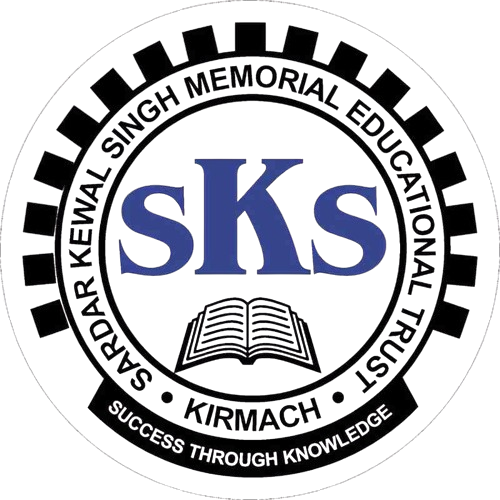Finishing a BA gives you a strong foundation in communication, critical thinking, and subject knowledge. Content writing is a natural career option because:
- It uses the writing and research skills you already have.
- It’s flexible — you can work full-time, part-time, remote, or freelance.
- Demand is growing: businesses, blogs, startups, and digital agencies all need content.
- You can specialize and increase income (SEO writing, copywriting, technical writing, content strategy).
- You can learn practical tools and techniques quickly — low barrier to entry.
If you graduated with a BA in English, History, Political Science, Sociology, or other humanities, you’re already ahead in reading, structuring ideas, and storytelling — core content-writing skills. Let’s dive into on How to Become a Content Writer After BA.
Must Read: Personality Development Through Humanities — A Complete Guide
Who this guide is for
- Recent BA graduates wondering “what next?”
- Final-year students who want a writing career.
- Anyone with a BA planning to switch careers into content writing.
- Parents or counselors helping BA students pick a practical career path.
Quick overview: The path in one glance
- Understand what content writing covers.
- Learn essential and niche skills (SEO, CMS, editing).
- Practice writing every day and build a portfolio.
- Create a simple resume and tailor a cover letter.
- Apply for internships, internships → junior roles, or start freelancing.
- Keep learning, specialize, and scale.
What does a content writer actually do?
A content writer creates text (articles, blog posts, social media posts, newsletters, product descriptions, website pages) aimed to inform, engage, or persuade an audience. Typical tasks include:
- Researching topics and competitors.
- Writing SEO-friendly articles and web copy.
- Editing and proofreading.
- Publishing content in CMS (e.g., WordPress).
- Working with designers, marketers, and editors.
- Measuring performance with simple analytics and refining content.
Essential skills every content writer needs (the must-haves)
1. Writing & grammar
Clear sentences, correct grammar, and flow. Simple language usually wins.
2. Research skills
Find accurate facts, trustworthy sources, and gather quotes/data quickly.
3. Editing & proofreading
Self-editing to make writing tighter, removing fluff, fixing typos.
4. Basic SEO knowledge
Understanding keywords, headings, meta tags, and user intent.
5. Headline & hook writing
A good headline and first paragraph decide whether readers continue.
6. CMS familiarity
Publishing in WordPress or other editors, adding images, formatting.
7. Time management
Meeting deadlines, working on several tasks at once.
8. Communication
Working with clients, editors, and teammates clearly and professionally.
Useful soft skills (help you stand out)
- Curiosity and willingness to learn.
- Persistence and discipline.
- Adaptability (writing for different tones and audiences).
- Feedback acceptance and improvement.
Helpful tools to learn (categories + examples)
- Text editors & CMS: WordPress, Google Docs, Microsoft Word.
- SEO & keyword planning: Google Keyword Planner, basic SEO tools (learn their basics).
- Grammar & clarity tools: Grammar checkers, readability checkers.
- Research & references: Online libraries, news portals, government websites, academic journals.
- Analytics basics: Google Analytics (basic metrics like page views, bounce rate).
- Design basics for writers: Basic image editors for formatting thumbnails and simple visuals.
You don’t need to master every tool — learn the basics well and build from there.
Specializations in content writing (pick one or more)
- SEO content writing: Create content designed to rank on search engines.
- Copywriting: Short, persuasive writing for ads, landing pages, and sales.
- Technical writing: Manuals, help guides, product documentation (good for STEM BA grads who pick technical topics).
- Creative writing & storytelling: Brand stories, long-form features, script-writing.
- Social media content: Short posts, captions, micro-copy.
- Content strategy: Planning content calendars, content audit and mapping to business goals.
- Academic & educational content: Study material, course content, question banks.
- Niche industries: Health, finance, law, real estate — require extra domain knowledge.
Should you study more after BA?
You don’t have to, but the right courses help accelerate learning:
- Short certifications in SEO, content marketing, or copywriting (no need to mention fees).
- Workshops on WordPress, Google Analytics basics, or technical writing.
- Degree vs. short courses: Many employers prefer practical skills and a strong portfolio over more degrees.
Also note: SKS Group of College offers a BSc degree program — if you or someone is exploring broader options in science before a writing career, that’s a pathway to combine domain knowledge with writing. (You asked to include SKS Group of College where we have a BSc degree program — mentioned here as requested.)
Step-by-step action plan after BA (practical, day-by-day and month-by-month)
First 0–7 days: Set the foundation
- Decide content writing is your path.
- Make a simple writing schedule: at least 30–60 minutes daily.
- Create a basic Google Drive folder to store all writing drafts and portfolio pieces.
First 1 month: Learn & practice
- Learn basic SEO concepts: keyword intent, headings, meta description.
- Start a simple blog (even a free WordPress or a Google Docs published page) to publish your writing.
- Write 10 short pieces: blog posts, social media captions, product descriptions.
- Read sample articles in your niche and analyze their structure.
Month 2–3: Build a mini-portfolio & presence
- Publish 5–8 good articles on your blog or platforms like Medium.
- Create a one-page portfolio (PDF or simple website) showing your best 4–6 pieces.
- Write a strong LinkedIn summary that highlights your writing intent and BA background.
Month 4–6: Look for internships and freelance gigs
- Apply for internships at agencies, startups, or content teams.
- Start applying on freelance platforms; bid on small projects to build reviews.
- Reach out to local businesses offering to write a sample blog post or menu/description for free or a small fee.
Ongoing: Specialize & grow
- After getting steady work, decide on a niche and deepen domain knowledge.
- Collect testimonials and case studies that show traffic improvement or conversions (if possible).
- Learn content strategy and basic analytics to show results.
How to create a portfolio that gets you hired
What to include
- A short bio — 2–3 lines: your BA, strengths, and what you want to write about.
- Best 6–10 writing samples — a mix of blog posts, social posts, and product descriptions. If you don’t have client work, create high-quality spec pieces.
- Results (if any) — numbers like increased page views, social shares, or client testimonials. (If no numbers yet, emphasize quality and research.)
- Contact info — email and LinkedIn.
- Optional: A downloadable resume and a short case study.
How to show spec work (if you lack client samples)
- Pick a topic in your chosen niche.
- Write a well-researched blog post (1200–2000 words) optimized for a target keyword.
- Create a short landing-page copy for a hypothetical product.
- Write 5 social media captions for a brand and explain the strategy behind each.
Resume & cover letter tips (for BA grads)
Resume (one page)
- Header: name, email, phone, LinkedIn.
- Summary: 1–2 lines about your BA and content focus. Example: “BA graduate with strong research and writing skills seeking an entry-level content writing role. Experience in blogging and SEO-friendly article writing.”
- Skills: writing, SEO basics, WordPress, research, editing.
- Experience: internships, volunteer, college articles, or spec projects.
- Education: BA details, university, year. (You may mention related training).
- Portfolio link.
Cover letter (short)
- Start with one line: why you’re applying.
- Show one relevant example: mention a piece you wrote or a college project that demonstrates your skills.
- Close with enthusiasm and next steps (interview availability). Keep it under 200 words.
Sample cover letter (short)
Dear Hiring Manager,
I am a BA graduate with strong research and writing skills, looking to start my career as a content writer. During college I researched and wrote long-form articles on social topics and maintained a blog where I published 12 posts about education and career tips. I enjoy turning complex topics into clear, reader-friendly content, and I have begun learning SEO basics. I would love to bring my research skills and writing discipline to your content team.
Sincerely,
[Your Name] — [Email] — [Phone]
How to find your first content-writing job (channels)
- Internships & entry-level jobs: Job boards, company career pages, LinkedIn.
- Freelancing: Platforms and direct client outreach (cold emails to small businesses, local cafes, or NGOs).
- Guest posting: Write for niche blogs or community websites to get exposure.
- Network: Alumni groups, college placement cells, social media groups for writers.
- Referrals: Offer to write a sample piece for friends’ businesses.
Freelancing 101 for beginners
How to start
- Create profiles on one or two freelance platforms.
- Keep prices low at first to get reviews, then raise rates.
- Offer “gig” packages: short blog post, long blog post, or monthly content bundle.
How to pitch
- Short, personalized message. Mention a quick idea you can implement.
- Include a link to 1–2 relevant samples.
- State delivery time and clear pricing.
Client management basics
- Use clear contracts (scope, delivery, revisions, payment method).
- Always ask for a 50% advance for new clients (optional).
- Deliver on time and on brief.
Pricing yourself (how to think about rates)
- Don’t pick a number randomly — base it on: complexity of topic, research time, length, client’s budget, and your experience.
- Beginner-friendly strategy: start with per-article prices for short articles, then move to per-word/per-hour or retainer contracts.
- As you collect results and testimonials, increase rates.
Avoid giving exact numbers; rates vary by market and experience.
Daily writing process (proven workflow)
- Brief & research: Understand audience and goal.
- Outline: Create headings and key points.
- First draft: Write quickly, don’t over-edit.
- Edit & refine: Remove fluff, check grammar and flow.
- SEO check: Add target keyword naturally, write meta description, and set headings.
- Final proofread: Read aloud or use a grammar checker.
- Publish & monitor: Upload to CMS, add images, and check performance after publishing.
Common beginner mistakes & how to avoid them
- Overwriting: Keep sentences short and to the point.
- Ignoring audience: Always write for a reader, not for yourself.
- Forgetting structure: Use headings and short paragraphs for web content.
- Keyword stuffing: Use keywords naturally.
- Skipping editing: First draft is rarely publish-ready.
- No portfolio: Even a few good spec pieces beat an empty portfolio.
Must Read: Future of Digital Education — Trends, Skills & Roadmap
Conclusion
Becoming a content writer after BA is practical, achievable, and often faster than many other career tracks. Your BA has already given you the core tools: reading, analysis, and writing.
What you need next is structured practice, a few tech skills (SEO, CMS), and confidence to pitch your work. Start small, build a portfolio, and gradually specialize.
Results compound — the more you write, the better you get, and the easier it becomes to find paid work.
Frequently Asked Questions (FAQs)
Q: Can I become a content writer with a BA and no experience?
Yes. Many start with spec pieces, blogging, and internships. Consistent practice and a small portfolio can open doors.
Q: How long will it take to get the first paid job?
It varies — some get paid gigs within weeks, others take a few months. Focus on building samples and pitching often.
Q: Do I need to know SEO?
Basic SEO is essential for web content. Advanced SEO can be learned later.
Q: Is freelancing risky after BA?
Some risk exists, but you can start part-time while searching for full-time roles. Build a steady client list before quitting a stable job.
Q: What niche should I choose?
Pick something you enjoy and are willing to research — health, education, tech, finance, lifestyle. Niche expertise helps you charge more.

